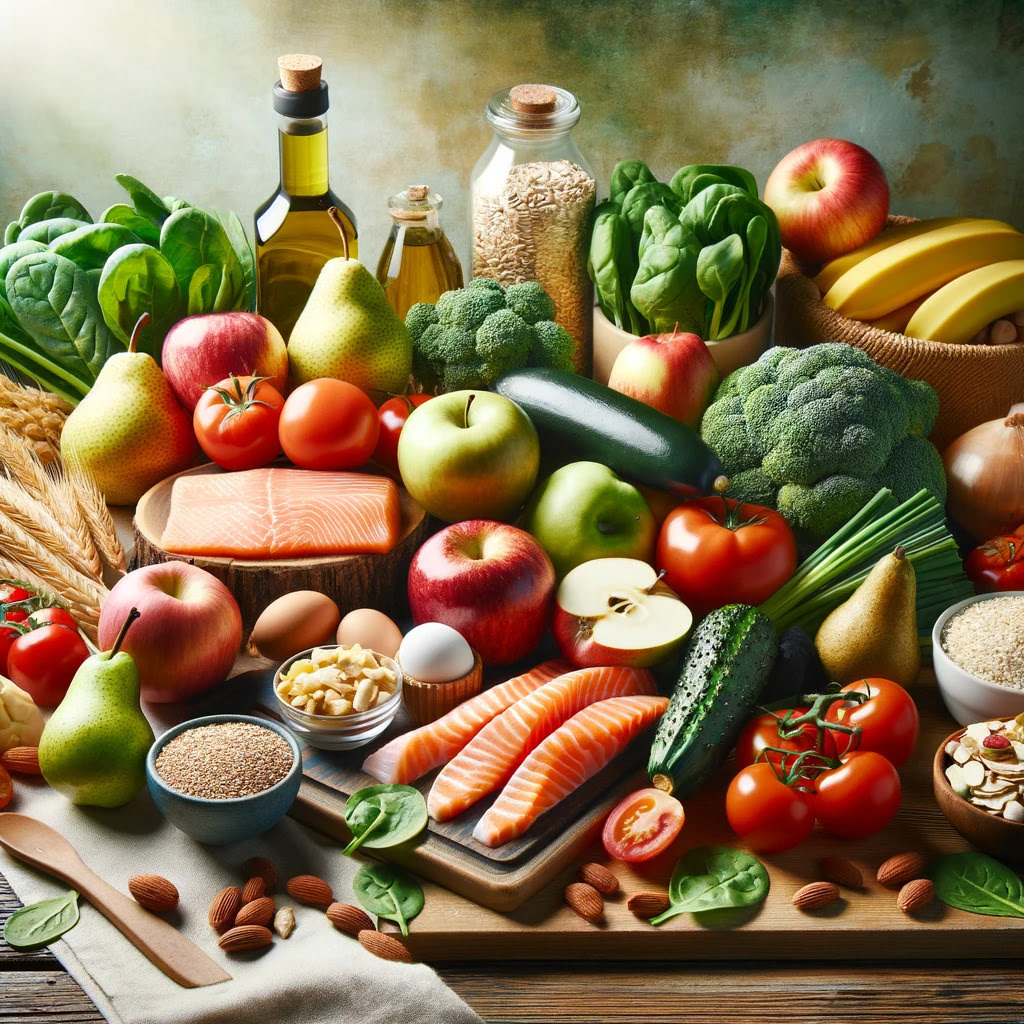- The Ultimate List of Healthy Foods for a Balanced Diet
- Lean Proteins for Muscle and Metabolism
- Whole Grains for Energy and Health
- Vegetables and Fruits for Vitamins and Minerals
- Healthy Fats for Brain and Heart
- Legumes for Fiber and Nutrient Density
- Dairy Alternatives for Calcium and Vitamin D
The Ultimate List of Healthy Foods for a Balanced Diet
Eating a variety of healthy foods is crucial for maintaining a balanced diet and overall well-being. This article, drawing from recent studies and current nutritional guidelines, presents a list of healthy foods that should be staples in your weekly diet.
Lean Proteins for Muscle and Metabolism
-Chickpeas: High in protein and fiber, chickpeas are versatile and can reduce appetite and calorie intake at meals.
-Chicken: Offers high-quality protein which is important for muscle maintenance and repair, bone health, and weight management.
– Salmon: Rich in omega-3 fatty acids, it supports heart health and reduces the risk of chronic diseases.
Whole Grains for Energy and Health
– Quinoa: A gluten-free, high-protein grain that contains all nine essential amino acids.
– Oats: Linked to lowering blood cholesterol and stabilizing blood sugar levels.
Vegetables and Fruits for Vitamins and Minerals
-Spinach: Loaded with vitamins, minerals, and antioxidants, spinach can benefit eye health, reduce oxidative stress, and lower blood pressure levels.
-Apple: Apples have been associated with a lower risk of several chronic conditions, including heart disease, diabetes, and cancer.
Healthy Fats for Brain and Heart
-Olive Oil: A staple in the Mediterranean diet, olive oil is linked to heart health and longevity. It can reduce the risk of heart disease and stroke.
-Avocado: High in monounsaturated fats, which are heart-healthy fats.
Legumes for Fiber and Nutrient Density
-Lentils: Offer plant-based protein and fiber, contributing to feeling full and satisfied.
Dairy Alternatives for Calcium and Vitamin D
-Tofu: A great source of protein, especially for those following a plant-based diet. Studies suggest tofu intake is inversely associated with the risk of breast cancer.
Incorporating these foods into your diet can lead to improved health outcomes, including reduced risks of chronic diseases and better weight management. Always aim for a variety of foods to ensure you’re getting a wide range of nutrients necessary for good health.
Remember, no single food can provide all the nutrients your body needs – eating a varied diet is key. For specific dietary recommendations, consider consulting with a registered dietitian or a healthcare professional.
Sources
Grundy M, et al. (2018). Processing of oat: the impact on oat’s cholesterol lowering effect:
https://www.ncbi.nlm.nih.gov/pmc/articles/PMC5885279/
Gayer B. (2019). Effects of Intake of Apples, Pears, or Their Products on Cardiometabolic Risk Factors and Clinical Outcomes: A Systematic Review and Meta-Analysis:
https://www.ncbi.nlm.nih.gov/pmc/articles/PMC6813372/
Schwingshackl L, et al. (2014). Monounsaturated fatty acids, olive oil and health status: a systematic review and meta-analysis of cohort studies:
https://www.ncbi.nlm.nih.gov/pmc/articles/PMC4198773/
Wang Q, et al. (2020). Tofu intake is inversely associated with risk of breast cancer: A meta-analysis of observational studies:

